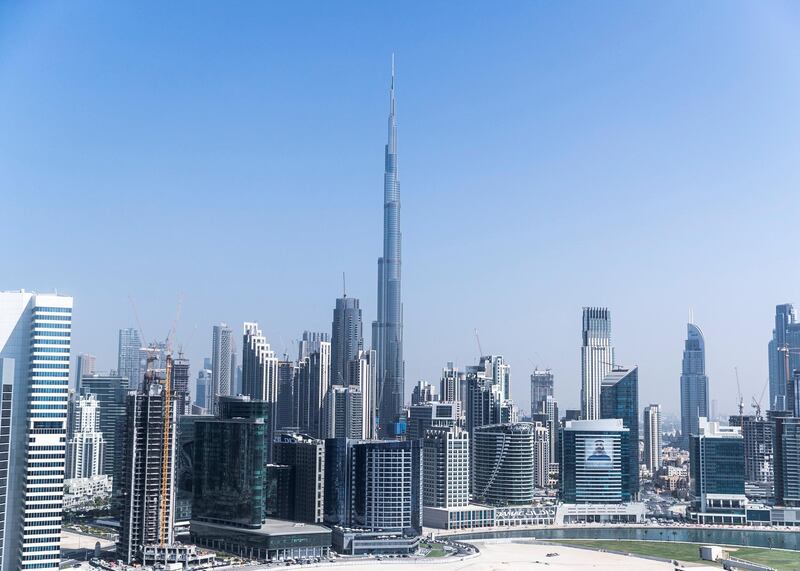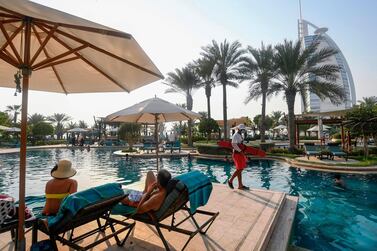Dubai's non-oil private sector economy improved in June, signalling an end to the three-month downturn triggered by the Covid-19 pandemic, as the emirate relaxed restrictions to contain the virus.
The seasonally adjusted IHS Markit Purchasing Managers' Index reading for Dubai rose to the neutral 50-threshold last month, up from 46 in May. A reading above the 50-mark is an indicator of economic expansion while anything below points to a contraction.
"The latest PMI survey data offered hopeful signs for the Dubai non-oil private sector," David Owen, economist at IHS Markit, said. The headline PMI marked "a notable improvement from the severe downturn seen during the coronavirus pandemic."
Business activity rose for the first time since February with new work picking up, although as in other economies around the world during the pandemic-induced slowdown, payroll numbers fell.
"Business activity was back in positive territory," Mr Owen said. "Some sectors were on the path back to normality, according to survey respondents, though others presented a more cautious picture, finding that demand in some areas, notably travel and tourism, was still extremely weak."
Dubai, a main tourism and financial hub in the Middle East, re-opened its borders and lifted night curfews.
Businesses saw output grow for the first time in four months and at a "solid rate," as business activity picked up following loosened restrictions.
Last month's uptick in business activity registered in Dubai's construction, retail and wholesale sectors. However, similar to the rest of the world, travel and tourism remained in decline, although business expectations turned positive for the first time since March.
Dubai opened it doors to international visitors on July 7 and expects its tourism industry to rebound this year as other countries begin to ease travel restrictions, Helal Al Marri, director general of the Dubai Department of Tourism and Commerce Marketing, told Bloomberg TV on Wednesday.
Emirates has resumed flights and is expanding its network to 52 destinations in July. Flydubai has also restarted service to 24 destinations, with more routes expected to be added over the summer months.
While overall business activity and new work levels rose in June, there was a further reduction in employment in the private sector.
Supplier prices increased during June, leading to a slight uptick in overall expenses at non-oil private sector firms. However, the rate of inflation was eased by additional salary cuts and lower workforce numbers.
In June, business confidence strengthened for the second month running as Dubai took steps toward normal activity by relaxing restriction measures. More companies are optimistic that activity will grow over the coming year, up from a record low in April.
Meanwhile, Abu Dhabi is planning to attract technology companies and skilled workers to accelerate its economic recovery early next year, in the wake of the pandemic and lower oil prices, Mohammed Ali Al Shorafa, chairman of the Department of Economic Development, told Bloomberg in an interview on Thursday.
The emirate wants to develop "the knowledge sector and innovation by attracting technology companies to put down roots in Abu Dhabi,” he said.
Abu Dhabi has beefed up its spending on capital projects, investing in start-ups and strategic industries—especially agriculture technology—and considering lowering the cost of living in the emirate, he said.
“Being competitive is not only reducing fees. But having the right livability aspects for people coming, living, educating and actually retiring in Abu Dhabi,” Mr Al Shorafa said. The cost of education, housing and even entertainment will be assessed.








